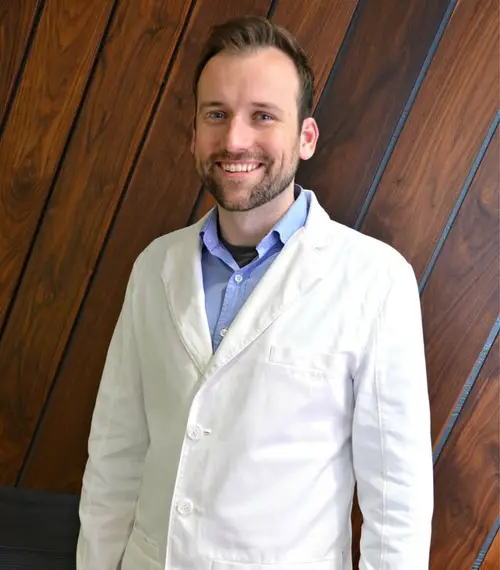When it comes to dental health, the thought of tooth extraction can send shivers down anyone's spine. Many people hold onto their natural teeth with fierce determination, but there are times when saving a tooth just isn't an option. Whether due to decay, injury, or other complications, knowing when and why extractions might be necessary is crucial for maintaining your overall oral health. In Portland, OR, where dental care options abound, understanding the ins and outs of extractions can help you make informed decisions about your smile. Let's explore this essential topic together!
Reasons for Tooth Extraction
Tooth extraction is often necessary for several reasons.
- One common cause is severe tooth decay. When a cavity progresses beyond repair, removing the tooth can prevent further complications.
- Another reason might be gum disease. Advanced stages of periodontitis can weaken the support structures of teeth, making extraction the best option to maintain oral health.
- Crowded teeth also lead to extractions. In orthodontic treatment, some teeth may need removal to create space and allow others to shift into proper alignment.
- Additionally, impacted wisdom teeth frequently require extraction as they can cause pain or infection if not addressed promptly.
- Trauma from an injury could damage a tooth beyond repair. In such cases, extracting the damaged tooth helps restore function and protect surrounding teeth.
Taking these factors into account allows dentists in Portland, OR, to make informed decisions about when extractions are necessary for optimal dental health.
The Process of Tooth Extraction
The process of tooth extraction typically begins with a consultation. Your dentist will assess your dental health and discuss the reasons for the extraction. X-rays might be taken to understand the tooth’s position.
Once you're ready, anesthesia is administered to ensure comfort during the procedure. Depending on the complexity, local anesthesia or sedation may be used. The dentist carefully loosens the tooth using specialized instruments like an elevator. If it’s impacted or has deep roots, surgical tools may come into play.
After removal, gauze is placed over the site to control bleeding. You’ll receive aftercare instructions tailored to your needs, ensuring optimal healing and minimal discomfort as you recover from this essential dental procedure.
Recovery and Aftercare Tips
After a tooth extraction, your body needs time to heal. Pay attention to your comfort level during recovery.
- Start with rest. Avoid strenuous activities for at least 24 hours post-procedure. This allows your body to focus on healing.
- Ice packs can be your best friend. Apply them to the outside of your cheek for 15 minutes on and off to reduce swelling.
- Stick to soft foods like yogurt or mashed potatoes for the first few days. Stay hydrated, but avoid using straws; they can dislodge blood clots critical for healing.
- Maintain oral hygiene carefully. Rinse gently with warm salt water after 24 hours, but steer clear of brushing directly over the extraction site initially.
- Watch out for unusual symptoms like excessive bleeding or increasing pain; these could signal complications that require immediate dental attention. Call us to learn more.
Alternatives to Tooth Extraction
Tooth extraction may seem like the only solution at times, but there are alternatives worth considering.
- One option is root canal therapy. This procedure aims to save a damaged tooth by removing infected pulp and sealing it, allowing you to keep your natural tooth.
- Another alternative is dental crowns. If your tooth has significant decay or damage, a crown can restore its shape and function while preserving most of the original structure.
- For those dealing with gum disease, scaling and root planing can help eliminate infection and prevent further deterioration. By addressing periodontal issues early on, many teeth can be saved without resorting to extraction.
- In some cases, dental bonding might also be viable. This technique repairs minor chips or cracks using composite resin that blends seamlessly with your existing teeth—no need for removal when repair is possible!
Importance of Consulting with a Dentist
Consulting with a dentist is crucial when considering tooth extraction. They bring expertise and experience to the table, ensuring you understand all your options.
A thorough examination will reveal the underlying issues affecting your dental health. This helps identify whether extraction is truly necessary or if other treatments could save your tooth.
Dentists can also assess how an extraction might impact adjacent teeth and overall oral function. Their insights are invaluable in making informed decisions tailored to your unique situation. Moreover, they provide personalized aftercare instructions that promote healing and prevent complications post-extraction.
Prioritizing communication with a trusted dental professional fosters better long-term outcomes for your smile and well-being.
Conclusion
Tooth extraction can be a daunting prospect, but sometimes it becomes necessary for your overall health. Whether due to decay, crowding, or other dental issues, understanding the reasons and process behind extractions is crucial.
Recovery from extraction may take some time, but with proper care and attention to aftercare tips, you can make it as smooth as possible. It's also essential to explore alternatives that might suit your needs better than going through extraction.
Consulting a dentist is vital in making an informed choice about whether extraction is right for you. They can guide you on what steps are best based on your specific situation.
Navigating tooth health can be complex. Being proactive in seeking advice will ensure that you're making choices that benefit not just your teeth but also your overall well-being moving forward. If you find yourself facing the possibility of extractions in Portland, OR, remember there are options available to help keep your smile bright and healthy.
Experience exceptional dental care with Dr. Richard Zeller at Fives Pines Dental! Call us today at (503) 482-2160 to schedule your appointment and discover how our personalized approach can enhance your smile. Visit us at 555 SW Oak Street, Suite A, Portland, OR 97204, where your dental health is our top priority.



